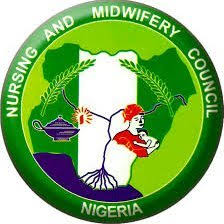National Health Financing Dialogue Calls for Urgent Action from States
At the close of the four-day National Health Financing Dialogue held in Abuja, Nigeria’s Coordinating Minister of Health and Social Welfare, Professor Muhammad Pate, issued a strong call to action: states and local governments must prioritize healthcare spending to ensure sustainable and equitable health outcomes across the country.
Key Messages from the Dialogue
- Healthcare financing is a shared responsibility, but the delivery of primary healthcare lies primarily with sub-national governments.
- Federal contributions—such as the Basic Health Care Provision Fund (BHCPF) and National Health Insurance Authority (NHIA)—are designed to support, not replace, state-level commitments.
- States are urged to increase health budgets and ensure full releases, in line with the compact signed with the Federal Government that recognizes health as a budgetary priority.
Professor Pate emphasized the need for:
- Publication of health budgets, disbursements, and performance metrics
- Treating health as core infrastructure and a matter of national security
- Recognizing healthcare assets—facilities, workforce, systems—as economic assets
States that demonstrate transparent, results-driven investments in health will set the national standard, leading to:
- Safer deliveries for mothers
- Healthier children
- Protection for vulnerable populations from healthcare-induced poverty
Strategic Partnerships and Diaspora Engagement
The Minister called on:
- Development partners to align their support with Nigeria’s national priorities
- Private sector investors to help attract foreign direct investment (FDI) into the health sector
- Nigerians in the diaspora to support relatives through NHIA premiums rather than emergency remittances
Budget and Economic Planning Perspective
Senator Atiku Abubakar Bagudu, Minister of Budget and Economic Planning, noted:
- Allocations to health and education have risen, reflecting increased revenues
- Despite reforms and growing confidence from partners, current funding levels remain inadequate for Nigeria’s population of over 220 million
- There is a need to attract more private capital at globally competitive rates
The event brought together:
- Government officials
- Development partners
- Civil society
- Private sector actors
- Academia
- Insurers
- Media professionals
The goal was to build a strong evidence base for sustained health financing and turn high-level commitments into actionable strategies.




